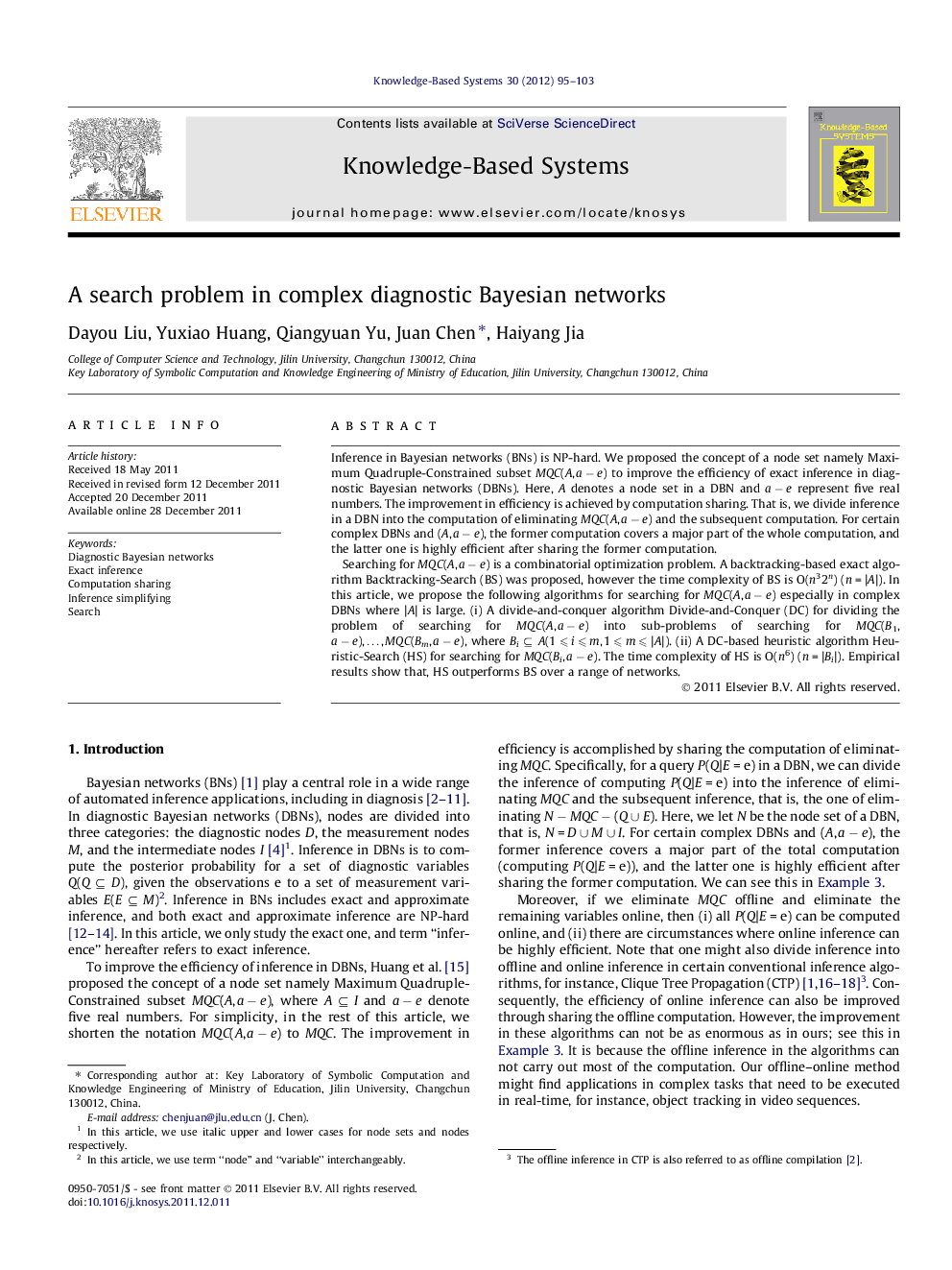| Article ID | Journal | Published Year | Pages | File Type |
|---|---|---|---|---|
| 402870 | Knowledge-Based Systems | 2012 | 9 Pages |
Inference in Bayesian networks (BNs) is NP-hard. We proposed the concept of a node set namely Maximum Quadruple-Constrained subset MQC(A, a − e) to improve the efficiency of exact inference in diagnostic Bayesian networks (DBNs). Here, A denotes a node set in a DBN and a − e represent five real numbers. The improvement in efficiency is achieved by computation sharing. That is, we divide inference in a DBN into the computation of eliminating MQC(A, a − e) and the subsequent computation. For certain complex DBNs and (A, a − e), the former computation covers a major part of the whole computation, and the latter one is highly efficient after sharing the former computation.Searching for MQC(A, a − e) is a combinatorial optimization problem. A backtracking-based exact algorithm Backtracking-Search (BS) was proposed, however the time complexity of BS is O(n32n) (n = |A|). In this article, we propose the following algorithms for searching for MQC(A, a − e) especially in complex DBNs where |A| is large. (i) A divide-and-conquer algorithm Divide-and-Conquer (DC) for dividing the problem of searching for MQC(A, a − e) into sub-problems of searching for MQC(B1, a − e), … , MQC(Bm, a − e), where Bi ⊆ A(1 ⩽ i ⩽ m, 1 ⩽ m ⩽ |A|). (ii) A DC-based heuristic algorithm Heuristic-Search (HS) for searching for MQC(Bi, a − e). The time complexity of HS is O(n6) (n = |Bi|). Empirical results show that, HS outperforms BS over a range of networks.
